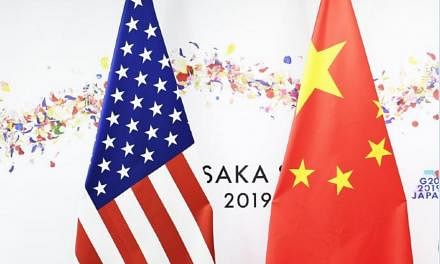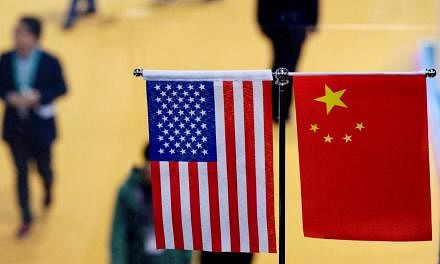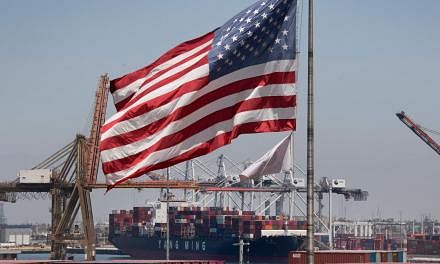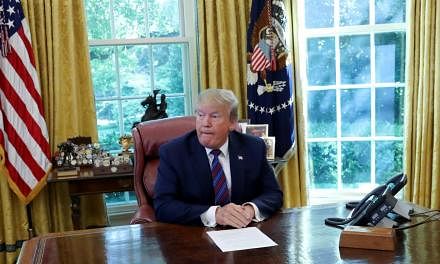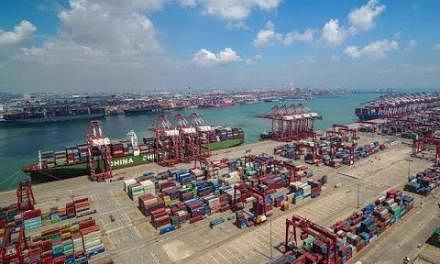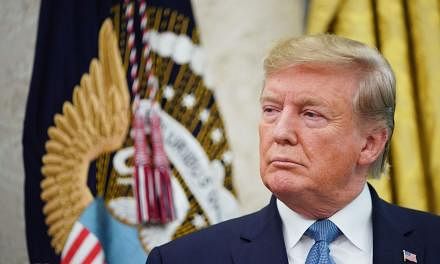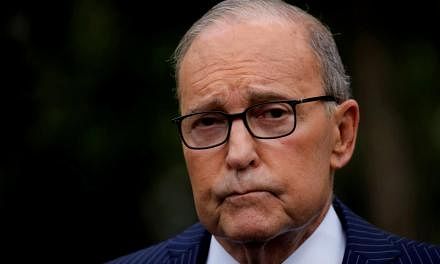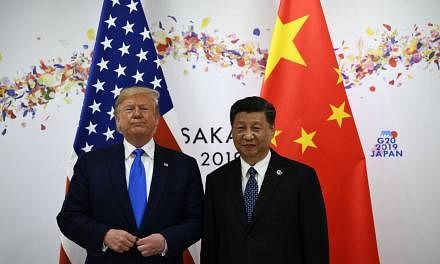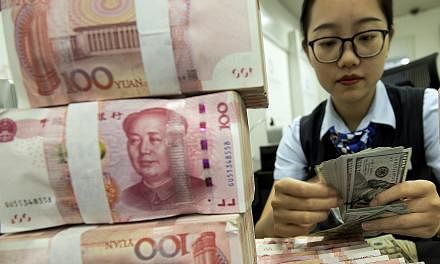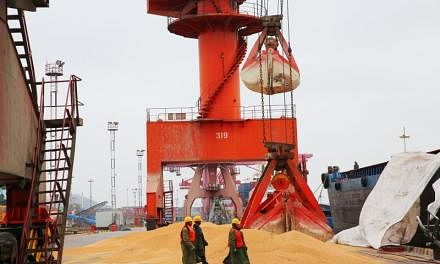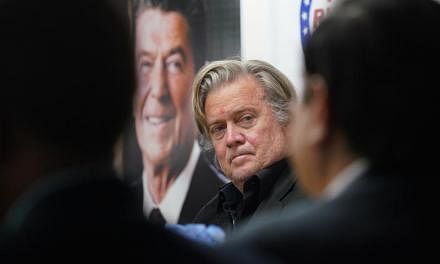WASHINGTON (BLOOMBERG) - Some of America's most prominent technology companies and retailers made a last-minute push to convince President Donald Trump to reverse course on a plan to impose tariffs on US$200 billion (S$275 billion) in Chinese imports.
Members of the public had until Thursday to comment on the administration's plan to slap tariffs on everything from bicycles and baseball gloves to digital cameras, paving the way for Mr Trump to announce the tariffs as early as Friday (Sept 7).
As of midnight US time, or Friday mid-day in Beijing, the White House made no announcement on its intentions.
Mr Trump, in an interview with Bloomberg News last week, showed no sign of backing down, repeating his longstanding complaint that China had taken advantage of the US and its leaders for decades.
"It's time to stop. We can't let this happen," the President said.
"We think there's a high likelihood it happens sometime soon," said Mr Josh Kallmer, executive vice-president for policy at the Information Technology Industry Council, referring to levies on US$200 billion in goods.
"It's becoming a lot more difficult for the administration to do what it said it's trying do, which is minimising harm to consumers."
The US Trade Representative's office didn't respond to a request for comment.
Tariff Plea
On Thursday, Cisco Systems Inc, Hewlett-Packard Enterprise Co, and other technology companies sent a letter to US Trade Representative Robert Lighthizer, urging the administration to avoid imposing more tariffs. By increasing duties on telecommunications networking gear, the administration would raise the cost of accessing the Internet and slow the roll-out of next-generation wireless technologies, the companies said.
Manufacturers and small and mid-sized firms, in particular, can't quickly adjust, and the tariffs imposed so far haven't led to any meaningful concessions, a coalition of the National Retail Federation and 150 organisations said in separate comments to Mr Lighthizer.
The administration should cease further tariff actions and give another shot at talks for a trade deal with China, it said.
"Tit-for-tat tariffs are counterproductive and so far have only produced increased costs for American businesses, farmers, importers, exporters and consumers,'' the coalition said.
The latest installment of tariffs would bring to US$250 billion the total value of Chinese goods hit with duties, covering nearly half of all imports into the US last year. Beijing has threatened to retaliate with duties on US$60 billion in American products.
China will be forced to retaliate if the US ignores resistance in public hearings and imposes additional tariffs, said Mr Gao Feng, a Ministry of Commerce spokesman, at a regular briefing on Thursday in Beijing.
The trade conflict between the world's two biggest economies shows little sign of abating, roughly two months after the US imposed its first round of tariffs on Chinese goods, and negotiations to defuse the tensions have stalled. The International Monetary Fund has warned that a trade war could undermine the strongest global upswing in years.
Business Warnings
At public hearings last month, companies warned that fresh duties on Chinese imports could hike costs and stifle innovation. Almost 350 individuals from companies, trade associations and other entities testified, with most opposed to the levies. Many lawmakers, including from Mr Trump's own Republican party, oppose the President's zeal for tariffs but have limited options for curbing such sanctions.
Efforts to negotiate a US-China truce have proved fruitless. Two days of talks in Washington in August failed to yield a breakthrough, following three rounds of unsuccessful talks earlier in the year, dimming hopes of a compromise.
The two nations have maintained contact on a working level since Vice-Commerce Minister Wang Shouwen visited the US last month, Mr Gao said on Thursday.
US trade officials are juggling a number of high-profile files, in addition to the China tariffs. Mr Lighthizer has been trying since last week to reach a deal with Canada on a revised North American Free Trade Agreement with Mexico, and he heads to Brussels next Monday to meet European Union officials to discuss the outlines of a trade deal announced in late July.
The Trump administration may roll out the tariffs on the US$200 billion of goods in phases. It waited about three weeks after announcing in mid-June that it was imposing tariffs on US$34 billion of Chinese goods before they were implemented. The next stage of tariffs on US$16 billion of goods took effect in August.
The tariffs are intended to punish China for what the Trump administration says are unfair trading practices, including the forced transfer of intellectual property from US companies trying to get a foothold in the Chinese market.
Investors in US assets have generally shrugged off the escalating trade war with China, said Ms Kristina Hooper, chief global market strategist at Invesco, which manages US$988 billion in assets. At some point, the duties will start to hurt American companies, she said.
"If we continue on our current trajectory, I do believe we'll experience some kind of reckoning," Ms Hooper said. "It may take longer to figure out what the repercussions are, but the US will not be unscathed."

